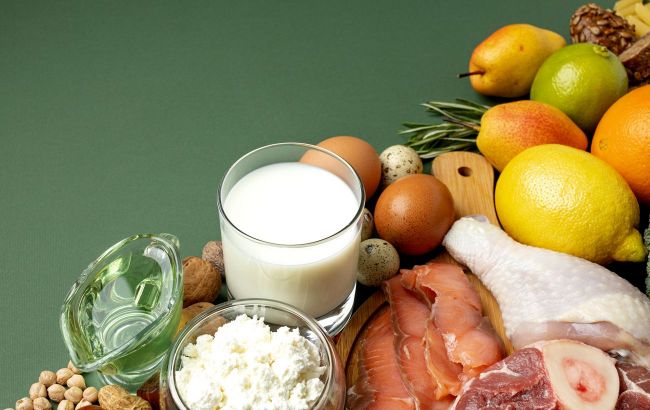6 products that improve your sleep: What to eat when dealing with insomnia
 Illustrative photo: What products help to improve your sleep (Freepik)
Illustrative photo: What products help to improve your sleep (Freepik)
Insomnia can be caused by various factors - health problems, stress, improper nutrition - but ultimately, it's a problem. Both diet and sleep are complex processes, which means there's no single product guaranteed to help with sleep. However, there are some foods and drinks that can facilitate the process of falling asleep.
Here's the list of products that affect sleep and can improve this process, according to Sleep Foundation.
Why certain products affect sleep
There is evidence that certain products can induce drowsiness or promote better sleep. Sometimes this is based on the study of a specific product, while in other cases, it's based on the fundamental nutritional components of food or drink.
The variety of types of most natural food products means that their nutrient content may vary. For example, some varieties of red grapes have a high level of melatonin, while others have practically none of this substance.
In this case, the variety of most natural food products means that their nutrient content may vary. For example, some varieties of red grapes have a high level of melatonin, while others have practically none of this substance.
Climate and growing conditions can further alter the nutrient content of a particular food product - hence the effect will vary.
This is why a balanced diet can often promote better sleep. The choice of diet affects not only energy and drowsiness but also weight, cardiovascular health, and blood sugar levels, among other properties.
Therefore, before making significant changes to your daily diet, it's better to consult with a doctor or dietitian. This will help ensure that your food choices support not only your sleep but also all other aspects of your health according to your individual needs.
Which products improve sleep
Kiwi
This small oval fruit with fuzzy skin contains many vitamins and minerals, especially vitamins C and E, potassium, and folic acid.
Studies have shown that consuming kiwi may improve sleep - in one study, people who ate two kiwis one hour before bedtime found that they fell asleep faster, slept longer, and had better sleep quality.
Researchers believe this may be due to its antioxidant properties, which suppress inflammation, as well as its ability to correct folate deficiency.
Tart cherry
As the name suggests, tart cherry has a distinct taste from sweet cherries. Sometimes called sour cherries, they can be sold whole or as cherry juice.
Several studies have found sleep benefits for people drinking tart cherry juice. In one study, people with diagnosed insomnia who drank two servings of cherry juice per day had greater overall sleep duration and sleep efficiency.
These benefits may be due to the higher-than-average melatonin concentration found in tart cherries - a hormone that helps regulate circadian rhythm and promotes healthy sleep. Tart cherries may also have antioxidant effects that aid sleep.
Malted milk
Malted milk is made by mixing milk with a specially formulated powder containing primarily wheat flour, wheat malt, barley malt, sugar, and a range of vitamins.
Research has shown that milk before bed reduces the number of sleep interruptions. This is likely due to the B vitamins, vitamin D, phosphorus, zinc, and magnesium found in malted milk, which can help relieve tension before sleep.
Milk also contains melatonin, so it can help provide a natural source of the sleep hormone.
Fatty fish
Researchers believe that fatty fish can help induce sleep by providing a healthy dose of vitamin D and omega-3 fatty acids, which are involved in serotonin release and regulation in the body.
In particular, consuming fish in winter and cloudy months, when vitamin D levels are usually lower, improves psychological well-being.
Nuts
Nuts such as almonds, walnuts, pistachios, and cashews are often considered sleep-friendly foods. They contain melatonin and omega-3, as well as minerals such as magnesium and zinc, which can help people sleep better.
The combination of melatonin, magnesium, and zinc has been shown to help people with insomnia.
Rice
Although research on carbohydrate consumption and sleep has yielded mixed results, some scientists link rice consumption to improved sleep.
For example, a study conducted in Japan found that those who regularly ate rice reported better sleep than those who ate more bread or noodles.
Recommendations for better sleep
Many principles of balanced and consistent eating go hand in hand with general advice on avoiding sleep disturbances related to food and drinks:
- Limit caffeine consumption, especially in the afternoon or evening when its effects may interfere with your ability to sleep at night
- Consume alcohol moderately, as it can disrupt sleep cycles, even if initially it induces drowsiness. Try to avoid alcohol, especially within 4 hours of bedtime
- Try not to eat too late to avoid digesting food before bed and reduce the risk of acid reflux. Be especially cautious with spicy and fatty foods late in the evening.
We previously wrote about how to help your body when you're tired.
We also described habits that will help maintain liver health.
This material is for informational purposes only and should not be used for medical diagnosis or self-treatment. Our goal is to provide readers with accurate information about symptoms, causes, and methods of detecting diseases. RBС-Ukraine is not responsible for any diagnoses that readers may make based on materials from the resource. We do not recommend self-treatment and advise consulting a doctor in case of any health concerns.

